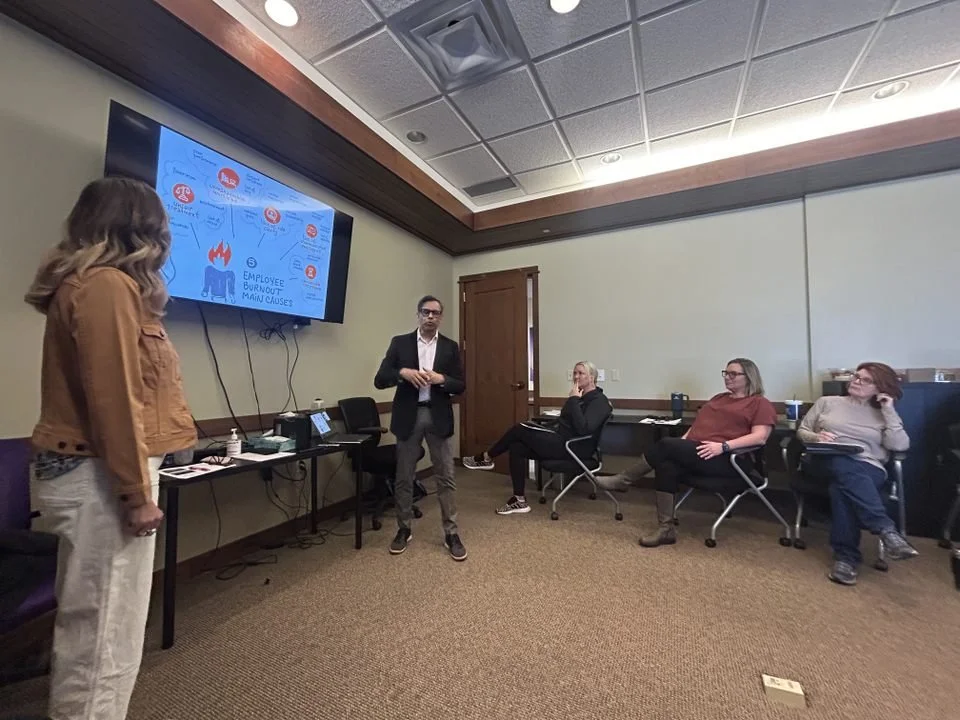Resiliency, Compassion, and Relationships: Addressing Burnout in Healthcare Workers
Burnout among healthcare workers has reached critical levels, particularly in the wake of increasing workloads, emotional exhaustion, and the ongoing demands of patient care. However, research highlights that resilience, compassion, and strong interpersonal relationships can significantly mitigate burnout, improve job satisfaction, and enhance overall well-being.
This summary explores the latest findings on how these key factors influence burnout prevention and intervention in healthcare professionals.
The Impact of Resilience on Burnout
Resilience—the ability to adapt and recover from stress—plays a crucial role in protecting healthcare workers from burnout.
Resilience as a Protective Factor
A study by Jo et al. (2024) found that resilience acts as a buffer against job stress, reducing the likelihood of burnout among hospice and palliative care nurses. The study emphasized that programs designed to build resilience led to lower job stress and increased professional satisfaction (Read more).
Resilience Training Reduces Emotional Exhaustion
Research in JACEP Open (Jachmann et al., 2025) highlighted that emergency department nurses and physicians who underwent resilience training reported lower levels of burnout and depression. The study concluded that structured interventions targeting stress resilience significantly improved healthcare professionals' well-being (Read more).
Psychological Resilience and Professional Quality of Life
A cross-sectional study in Saudi Arabia (Rayani, 2024) demonstrated that higher psychological resilience correlated with lower burnout rates in psychiatric nurses. The study found that resilience-building interventions not only protected workers from emotional exhaustion but also improved their ability to provide high-quality patient care (Read more).
Compassion’s Role in Burnout Prevention
Compassion—both self-compassion and compassion toward others—has been shown to significantly impact burnout rates among healthcare workers.
Compassion Fatigue vs. Compassion Satisfaction
A study by Todorovic et al. (2025) in Frontiers in Psychiatry examined the effects of compassion fatigue in long-term care workers. The findings revealed that higher levels of compassion fatigue correlated with increased burnout, whereas compassion satisfaction (finding meaning in patient care) served as a protective factor against exhaustion (Read more).
Self-Compassion and Burnout Reduction
Abbasi et al. (2024) explored the relationship between self-compassion and burnout in nurses. The study found that nurses who practiced self-compassion experienced lower emotional exhaustion and depersonalization, leading to improved patient care practices (Read more).
Compassion Training Enhances Job Satisfaction
Research in European Psychiatry (Batiridou et al., 2024) analyzed how compassion-based interventions improved psychosocial outcomes in healthcare workers. The study demonstrated that compassion-focused therapy and training helped reduce burnout and increase job satisfaction among medical professionals (Read more).
The Role of Relationships in Combating Burnout
Supportive interpersonal relationships in healthcare settings—whether through teamwork, mentorship, or leadership—play a critical role in mitigating burnout.
Social Support as a Mediator
A study by Abena (2024) examined how social support, teamwork, and resilience influenced job satisfaction in hospital nurses. The findings indicated that strong peer relationships and leadership support reduced burnout while fostering a positive work environment (Read more).
Secure Attachment in Healthcare Supervision
Research by Tsesmelis Piccolino (2024) in Clinical Social Work Journal suggested that cultivating "vicarious resilience" through strong supervisory relationships helped clinicians cope with compassion fatigue. Having a secure base in professional supervision significantly mitigated the negative effects of burnout (Read more).
Mindfulness and Team-Based Support
A study in Frontiers in Psychology (Shankar et al., 2024) found that mindfulness-based interventions, when combined with team-based support, resulted in improved resilience, teamwork, and reduced emotional exhaustion among physicians and nurses (Read more).
Practical Strategies for Addressing Burnout
Based on the research, the following strategies can help healthcare organizations address burnout effectively:
Resilience Training Programs – Implement structured programs that enhance healthcare workers’ ability to cope with stress. Read more about our 7 Steps for Building Resilient Teams.
Self-Compassion Interventions – Encourage self-care practices that promote emotional well-being.
Compassion-Based Leadership – Foster leadership styles that prioritize empathy and emotional intelligence.
Strong Support Networks – Establish peer support groups and mentorship programs to reduce workplace isolation.
Mindfulness and Stress Management – Introduce mindfulness-based practices to enhance mental resilience.
Recognition and Job Satisfaction Initiatives – Acknowledge and reward compassionate care to increase job fulfillment.
Burnout Prevention Training with Healthcare Teams
Solutions Centered Approach
Burnout in healthcare is a pressing issue, but research highlights promising solutions centered on resilience, compassion, and supportive relationships. By fostering emotional intelligence, promoting team cohesion, and implementing evidence-based interventions, healthcare organizations can significantly improve worker well-being and enhance patient care.
Are you ready to create a healthier, more resilient healthcare workforce? Start by integrating these findings into your practice today! Let us show you how! We offer a self-paced course on Resiliency or reach out to us for a free consultation.


